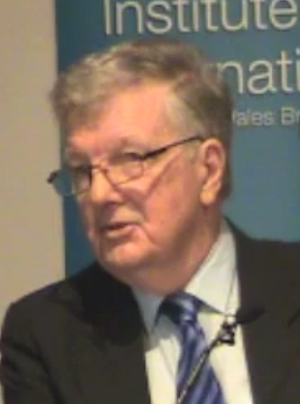Neville Meaney
(academic) | |
|---|---|
 | |
| Born | 2 July, 1932 |
| Died | 30 May 2021 (Age 88) |
| Nationality | Australian |
| Alma mater | University of Adelaide, Duke University |
| Member of | Australian Institute of International Affairs |
Neville Meaney was an Australian historian who taught at Sydney University from 1962 until 2006, concentrating on foreign and defence policy.[1]
He was first Australian historian to be awarded an American PhD, from Duke University. His career began a critical time – the 1960s – when the certainties of the nation’s British-centred past were crumbling under the weight of changing domestic and international circumstances.[1]
Opinions
In a public lecture in 2011, Meaney asked whether a study of the rise of nationalism and modernisation in the West and Japan might help us better understand, and perhaps even anticipate, current geopolitical pressures in East Asia, including on China’s rise. He was troubled, too, by the lack of focus on Indonesia and its future for Australian policy.[1]
Meaney believed the study of Australian nationalism, at least for the period from the late 19th century down to the 1960s, could only be unravelled if it was appreciated that while Australia’s first response in terms of sentiment was to British race patriotism rather than a distinctive national culture, Australians insisted they should maintain exclusive control over the direction of their political affairs.[1] Whether this creative tension between Australia’s cultural loyalties and its distinctive political interests is still in play was debatable. Australia appeared to have decided that its cultural loyalty – now focused on Washington – and its national interest – ensuring US regional primacy is maintained – are mutually reinforcing.[1]
Meaney inspired several generations of students who went on to either academic careers or senior positions in the Australian public service, including in the Department of Foreign Affairs. This include Dennis Richardson.[2]